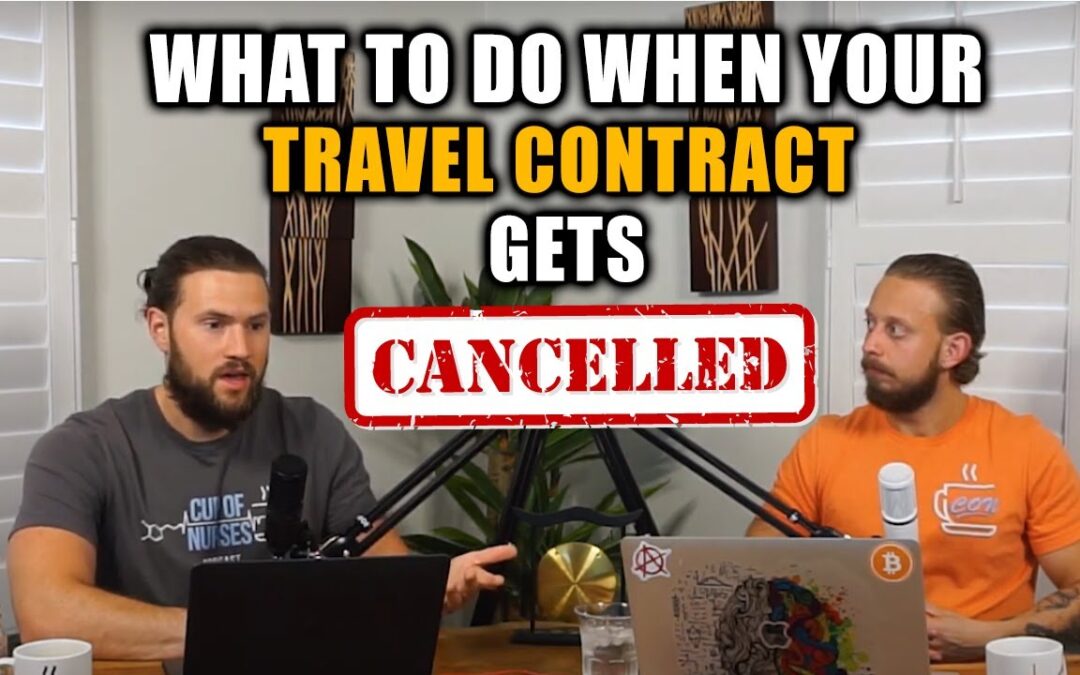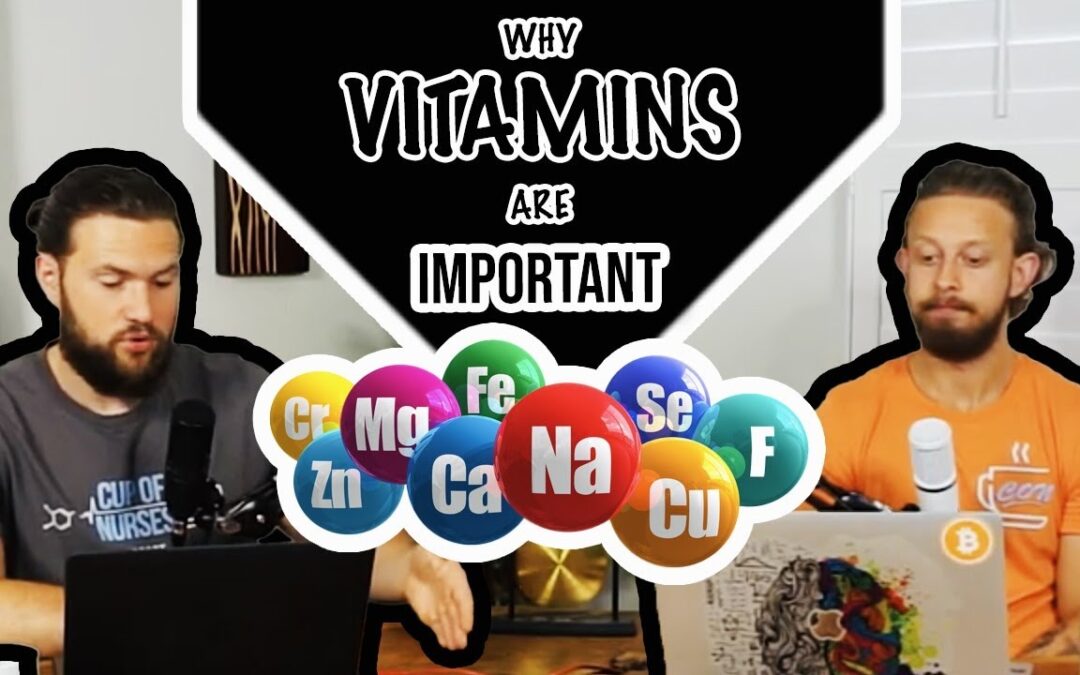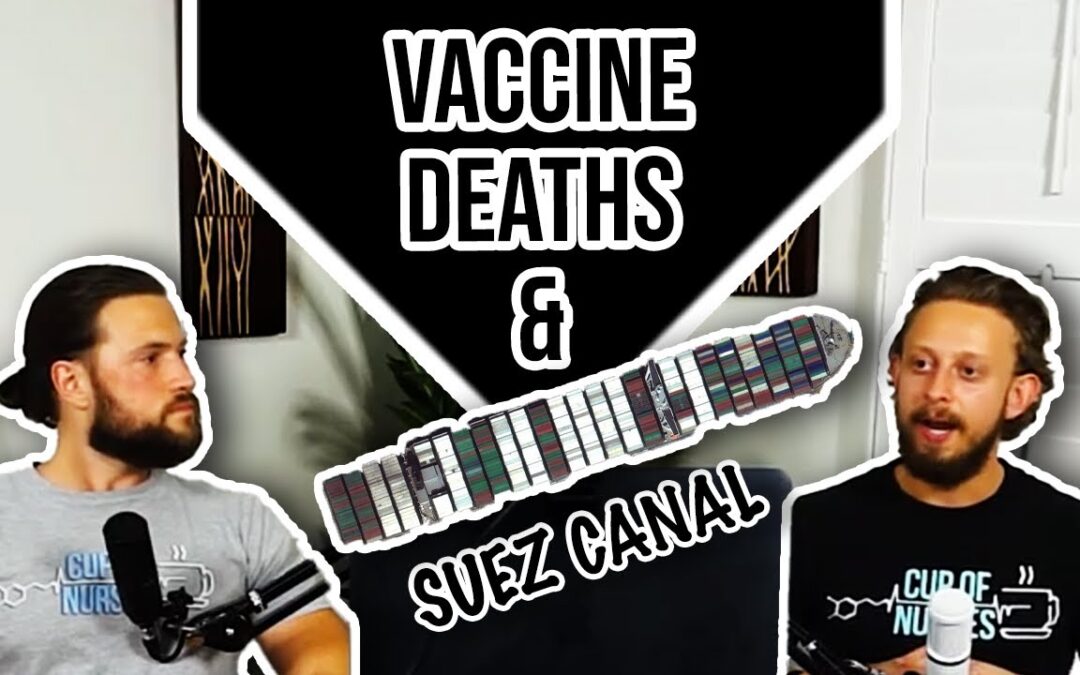
EP 107: When Your Travel Nursing Contract Gets Cut Short
What to do When Your Travel Nursing Contract Gets Cut Short
Travel nursing is a lucrative business, it pays well, and you can have a lot of fun. A typical travel nursing contract is anywhere from 8 to 13 weeks, with the option to extend after each contract. We are hearing a lot of nurses getting canceled mid-contract or even during their first shift. We’re going to provide some insight on how to make your cancelation a little bit more manageable.
- Know how long you want to stay in one location
- Don’t sign a long-term lease
- Two-week grace period
- Look for jobs before the contract expires
- Be financially smart
- Have profiles with multiple agencies
1. Know how long you want to stay in one location.
The most efficient and effective way to get the most out of a travel nursing contract run is to stay at a place for multiple contracts. Why? Because when you extend your contract, it is usually accompanied by a pay increase. Hospitals do this because you’ve already completed orientation, and it is more cost-effective to keep a nurse than train a new one.
Another reason is to know how long you want to stay so that your recruiter can keep looking for jobs in the area. If your recruiter knows you want to stay in a location longer, they will keep looking at contracts. This works out well when you do get canceled mid-assignment. It will be easier for you to find a job on shorter notice.
During your contract, let your recruiter and the manager know you want to extend your travel nursing contract once it’s up that way, they don’t have to look for a nurse that may fill a future position, and it may avoid you being cut because they know you are willing to commit longer.
2. Don’t sign a long-term lease.
One mistake that nurses make is signing a long-term lease. They go in thinking they’ll be in one location for a year. That isn’t always the case. If you want to be somewhere for a year, we’d recommend letting your recruiter know about the facility so they can potentially work on it with you. A facility might be able to keep renewing your contract but let them know ahead of time.
We don’t recommend signing such a long-term lease because things change quickly. You might be better off doing a 3-month lease and renewing it each time. You might not even like the facility or the location.
You can lose a lot of money by breaking the lease agreement, the money you could have even saved by signing short-term leases.
3. Make sure your contract has a 2-week grace period.
Look through your contract, and if it doesn’t have a clause stating that you’ll get a 2-week notice before your cut, make sure you get one. This way you at least have two weeks to find another job.
Some places don’t offer a 2-week notice, but I would still push for one because you never know what can happen. Getting cut short is stressful, and you need ample time to adjust.
4. Look for other jobs before your contract ends.
Your contract has an end date, have your recruiter start lining you up with jobs as soon as possible. This way, if you get cut, you already have something lined up, and they may even be able to take you on early.
It would be best if you always had a job lined up at least a month before your contract expires. That way, you aren’t chasing time and working yourself up about job security.
Travel nursing jobs have a specific start date, but that can be adjusted if you apply for jobs a month out and get cut two weeks early. The next facility might be able to hire you earlier.
5. Be financially savvy.
Just because you can afford a more excellent place because you have a more considerable income coming in doesn’t mean you should take it. Nursing is a stable career, but you should be prepared for the worst. Getting cut puts you in a financial hole, and it’s much harder to get out if you always live in luxury.
Make sure to have an emergency fund that covers at least one month of travel nursing expenses; this is different than your standard emergency fund, which should cover about three months worth of bills.
6. Work with multiple agencies.
Different agencies have different locations and contracts. Even if you enjoy working with 1, keep your foot in the door of others. Finding a temporary arrangement after you get canceled when you work with multiple agencies is much easier because you’ll have more offers.
It is common for nurses to find a home with one agency but don’t get stuck in that one forever because there will be times when you’ll have to reach out to others, and when you already have your paperwork filled out, it makes for a smoother process.
Here’s what you can do in case your travel nurse contract gets canceled. Click here 👇👇👇
TIMESTAMPS:
00:00 Intro
00:10 Today’s topic
01:17 As a travel nurse, you must adapt to things
02:43 Know how long you want to stay in a location
07:25 Don’t sign a long-term contract lease
10:08 Make sure you have a 2-week grace period in your contract
12:40 Look for other jobs before your contract ends
15:15 Be financially smart
19:26 Financial stress sucks
25:05 Work with multiple agencies
30:07 If you need us to help you
30:32 End of Show





Recent Comments